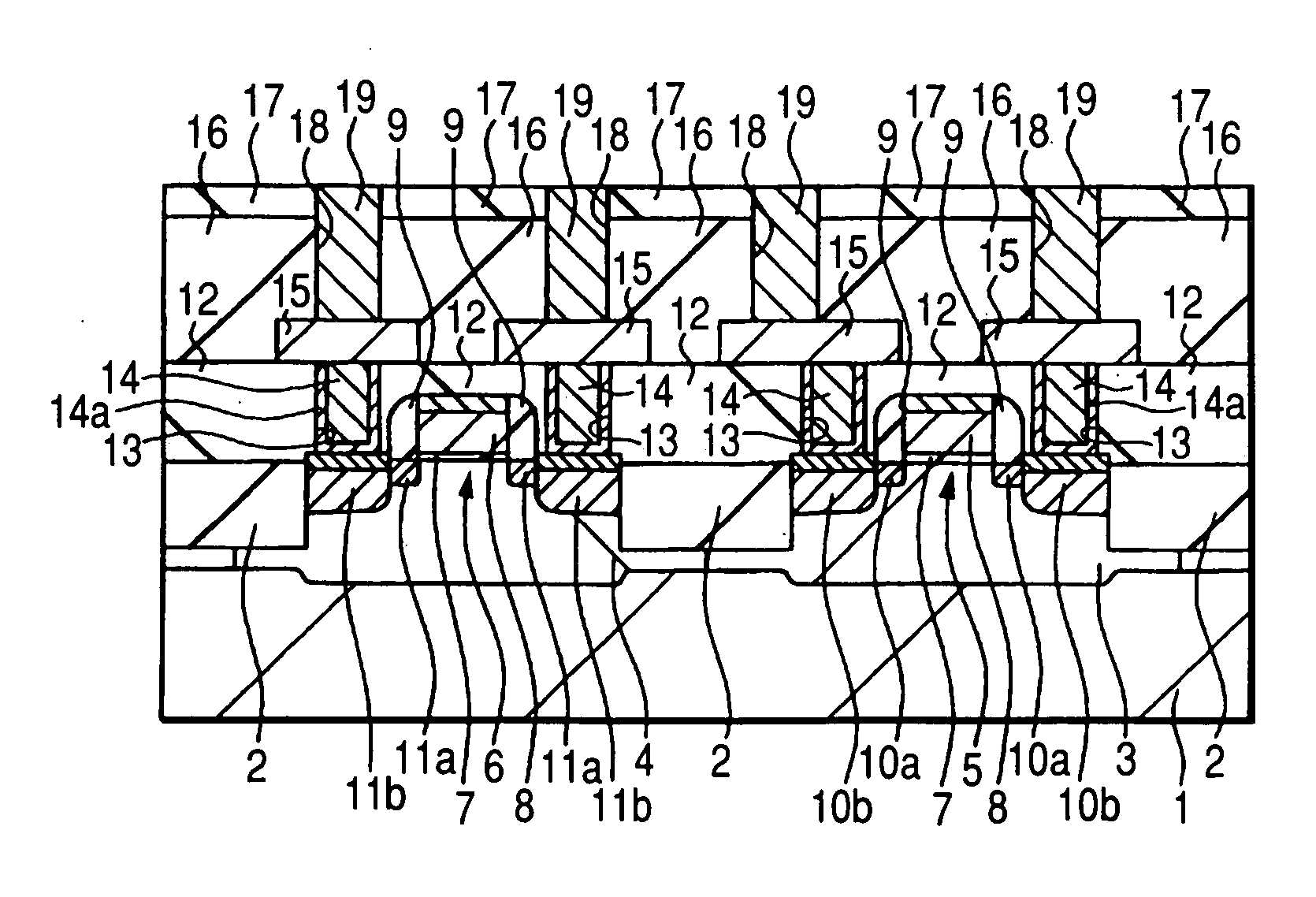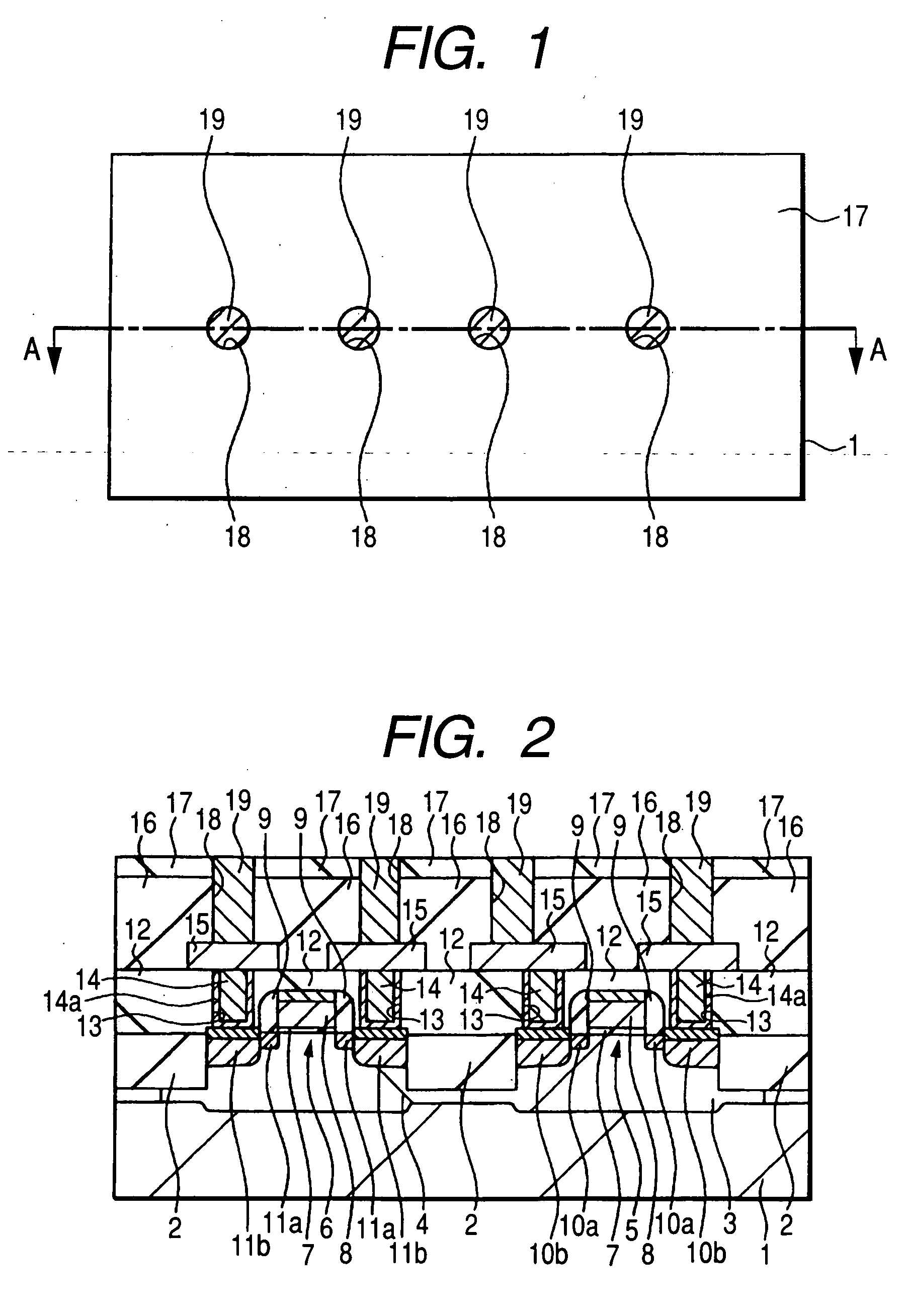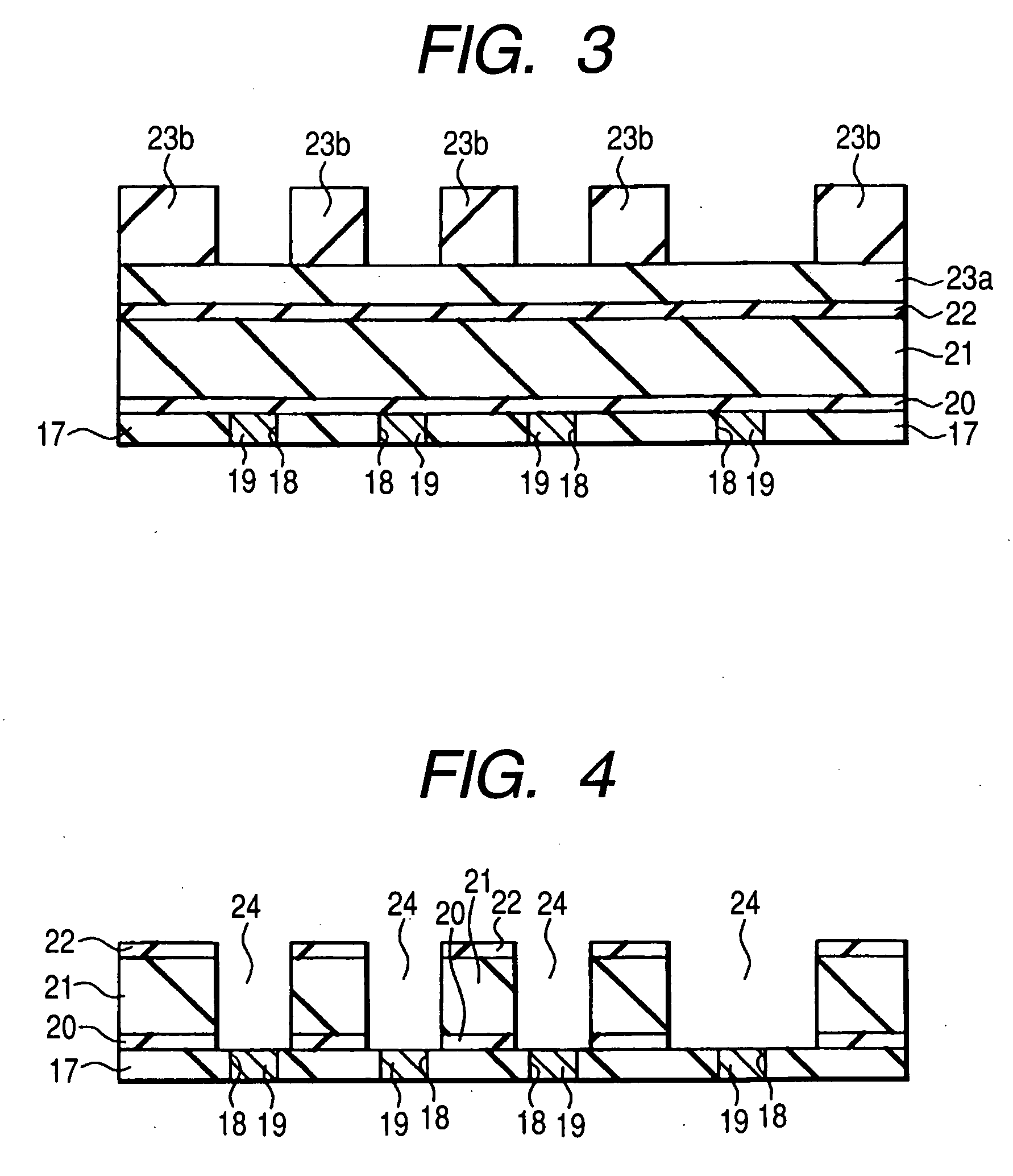Semiconductor device and a method of manufacturing the same
a technology of semiconductors and devices, applied in semiconductor/solid-state device manufacturing, basic electric elements, electric devices, etc., can solve the problems of reducing deteriorating the tddb life, and more difficulty in securing the tddb life, so as to improve the dielectric breakdown strength and reduce the interconnect capacitance
- Summary
- Abstract
- Description
- Claims
- Application Information
AI Technical Summary
Benefits of technology
Problems solved by technology
Method used
Image
Examples
embodiment 1
(Embodiment 1)
[0051] First, a causes for deteriorating the TDDB life between the inlaid interconnects each having copper as a main conductor layer, which have been investigated by the present inventors, will be described. The term “TDDB (Time Dependence on Dielectric Breakdown) life” is a measure for objectively measuring time-dependence of dielectric breakdown and means time (life) determined by extrapolation to an electric field intensity in actual use (e.g. 0.2 MV / cm) from a graph prepared by applying a comparatively high voltage to between electrodes under a measuring condition at a predetermined temperature (e.g. 140° C.) to plot a time from voltage application up to dielectric breakdown against an applied electric field.
[0052] A deterioration in the TDDB life is presumed to occur because copper employed as an interconnect material diffuses around and lowers dielectric breakdown strength between interconnects. Investigation results by the present inventors however suggest that...
embodiment 2
(Embodiment 2)
[0112] FIGS. 20 to 25 are fragmentary cross-sectional views of the semiconductor device according to another embodiment of the present invention during its manufacturing steps. Manufacturing steps up to FIG. 10 are similar to those of Embodiment 1 so that a description on them is omitted and manufacturing steps following those of FIG. 10 will next be described.
[0113] After formation of the structure as illustrated in FIG. 10, an insulating film 29 made of, for example, a silicon nitride film, and an insulating film 30 made of, for example, a silicon oxide film are formed in this order over the insulating film 28 as illustrated in FIG. 20. CMP treatment is conducted if necessary to planarize the upper surface of the insulating film 30. It is not always necessary to form the insulating film 30.
[0114] Over the insulating film 33, an antireflective film 50a and a photoresist film are formed in this order, followed by patterning of the photoresist film by exposure, whereb...
embodiment 3
(Embodiment 3)
[0123]FIG. 26 is a fragmentary cross-sectional view of a semiconductor device according to a further embodiment of the present invention during its manufacturing step. The semiconductor device according to this embodiment has a multilevel interconnect structure having, in combination, an interconnect layer in which a void is formed between two adjacent interconnects and moreover, two adjacent interconnects are not connected via a CMP surface as the second-level interconnects 25 or third-level interconnects 36 of Embodiment 1; and an interconnect layer formed by the conventional inlaid interconnect forming technique. In FIG. 26, the manufacturing steps up to the formation step of the insulating film 42 are similar to those illustrated in the drawings up to FIG. 19 in Embodiment 1 so that overlapping description is omitted. The manufacturing steps thereafter will next be described.
[0124] In this Embodiment, an insulating film 60 made of silicon oxide is formed over the ...
PUM
 Login to View More
Login to View More Abstract
Description
Claims
Application Information
 Login to View More
Login to View More - R&D
- Intellectual Property
- Life Sciences
- Materials
- Tech Scout
- Unparalleled Data Quality
- Higher Quality Content
- 60% Fewer Hallucinations
Browse by: Latest US Patents, China's latest patents, Technical Efficacy Thesaurus, Application Domain, Technology Topic, Popular Technical Reports.
© 2025 PatSnap. All rights reserved.Legal|Privacy policy|Modern Slavery Act Transparency Statement|Sitemap|About US| Contact US: help@patsnap.com



